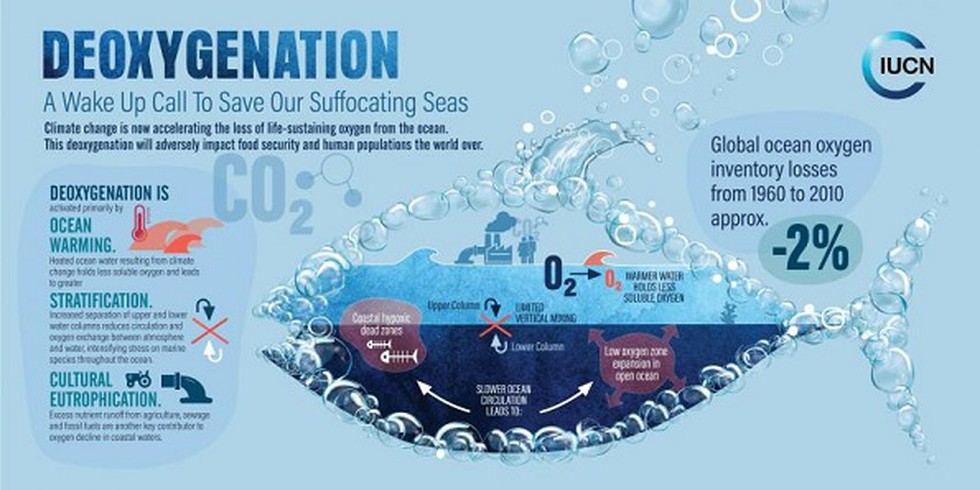Key findings of the study:
- The levels of oxygen in oceans fell by around 2 per cent from 1960 to 2010.
- The oxygen content of the world’s oceans is not uniform. The water in some parts of the tropics had experienced a 40 per cent to 50 per cent reduction in oxygen.
- The deoxygenation of the oceans occurred due to climate change and other human activities (such as the nutrient runoff from farm fertilizers into waterways), the report said.
Impact:
- In many parts of the world fish have been dying en masse.
- The loss of oxygen in the oceans can affect the planetary cycling of elements such as nitrogen and phosphorous which are essential for life on Earth.
- As oceans lose oxygen, they become more acidic, which has resulted in some places in shellfish having their shells degraded or dissolved — the so called “osteoporosis of the sea”.
